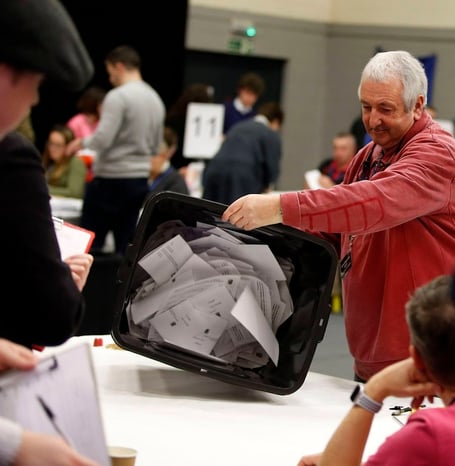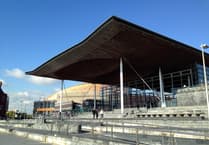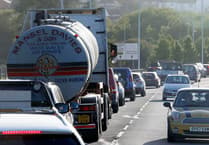I frequently hear people say that they don’t vote and when asked why, the response usually is, “They’re all the same!”
It makes me wonder if these people realise how democracy has been fought for in this country, how many people on the planet are still dying to get a vote, literally. Would people who don’t vote be happy if we lived in a dictatorship where their voice didn’t count at all?
The suffragettes were prepared to go to huge lengths to get the vote for women. Even when they did, it took another decade before all women were able to put a cross on the ballot paper.
In next year’s Senedd Elections, all 16 and 17 year olds will be allowed to cast their vote. The 96 Senedd Members, up from 60, will be elected in a far more proportional way than before. I still find people talking about voting tactically, telling me they’ll vote for one particular party in order to keep another one out. Electors need to know they can actually vote with their heart, vote for the party they believe in.
Over the decades I’ve been involved in elections, I’ve had lots of conversations with people on the doorstep. It has always amazed me how many people don’t know how to vote. You might think that a simple cross in a box behind a candidate’s name or a party would be easy, but for those who’ve never done it, the not knowing how to do it, the fear of looking a fool, is what puts them off.
Next year’s election is more complicated but not for voters. I don’t want anybody to be put off by explanations of the new system. I recall one particular election during the pandemic. We dutifully queued outside the polling station, the list of candidates on the wall.
One lady asked, “How do I vote for Mark Drakeford? I can’t see his name.” Mark Drakeford was respected by many people because of his calm handling of the pandemic so I could understand why she was looking for his name. I piped up, “Mark is only on the ballot paper in Cardiff. You can’t vote for him here.” That lady looked confused. I felt sorry for her that she didn’t understand the system.
With 16 and 17 year olds voting next year, I sincerely hope that schools take on the responsibility of educating them. Schools often have sham elections. Calculating the winners using the D’Hondt counting method will make a terrific maths lesson.
The new Senedd constituencies are also more complicated. Ceredigion’s joined with Pembrokeshire in a large constituency called Ceredigion Penfro.
Gwynedd Maldwyn includes Dwyfor Meirionnydd and Montgomeryshire and Glyndŵr, and other parts of Powys are included in Brycheiniog Tawe Nedd. It appears to be a bit of a mishmash.
Finding a Senedd Member who truly represents your area might be difficult. We’ll all have six. Time will tell how it pans out. I hope we’ll have a variety of Senedd Members who can represent different interests, no matter where you live.
I’m not allowed to vote in the Westminster elections but I am in the Senedd and council elections. I take this right seriously. Democracy may not be perfect but it’s better than anything else ever dreamt up by human kind. Between formal elections I’m still active, campaigning for better services, signing petitions, writing to elected politicians. That’s participatory democracy, equally vital besides ticking a box on election days.
Finally, I really don’t think ‘They’re all the same!’ Read the different parties’ policies, ask candidates candid questions and demand an answer, you’ll be amazed at the difference.




Comments
This article has no comments yet. Be the first to leave a comment.